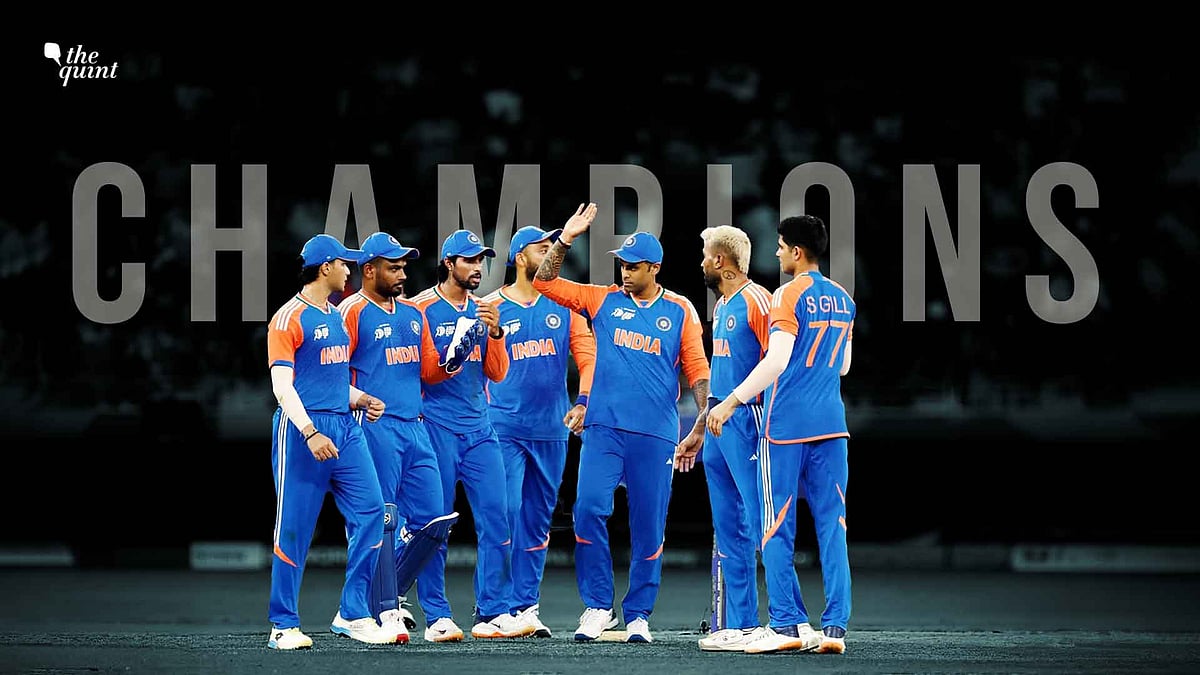Asia Cup: Rinse, Repeat, 3 Peat. Pakistan Beaten, India Are the Champions Again.
2025 Asia Cup: For the third time in as many weeks, India have defeated Pakistan.

advertisement
The law of averages suggests that outcomes should balance out if repeated often enough over a short span. If you win too frequently, you are bound to lose soon enough.
But India vs Pakistan has turned out to be an anomaly in recent years. For the third time in as many weeks, India have beaten Pakistan. With this, they have secured their eighth consecutive triumph over the neighbours. But more importantly, today’s win earns India their ninth Asia Cup title.
Though they might not have received the trophy yet, which deserves a whole different discourse in itself, the men in blue are the undisputed continental champions. But, was there ever any doubt?
Pakistan's Epic Batting Collapse
Opting to bowl first, India did not quite enjoy the start they would have ideally preferred. The absence of Hardik Pandya — usually effective with the new ball — could have been cited as a factor, had Shivam Dube not stepped up admirably in that role. Instead, Sahibzada Farhan took on Jasprit Bumrah, yet again, and then the spinners.
The next nine wickets fell for just 62 runs. Fakhar Zaman impressed during his 35-ball 46, but beyond the openers, no batter crossed 15. In fact, Pakistan’s number 3 to number 11 cumulatively accumulated merely 36 runs with the bat.
Spin It to Win It
Kuldeep Yadav spearheaded the assault with four wickets. The tournament’s leading wicket-taker, the left-arm wrist spinner’s tally increased to 17, when no other bowler had taken over 10 wickets.
Mentioning how he bowled with poise and composure even after a poor start with the ball, Yadav stated:
Yadav’s partner-in-crime, Varun Chakaravarthy’s wickets column might read only 2, but those were the important wickets of Farhan and Zaman, who combined to score 103 of Pakistan’s 146 runs.
A Mini Collapse, Before Tilak Varma's Rescue Act
With the target being unassuming, it would not have been outlandish to expect a quick and comfortable chase from the Indian side. Except, Shaheen Shah Afridi and Faheem Ashraf were excellent with the new ball, on a pitch that was two-paced.
But it was not to be, owing to a couple of partnerships. The first was a 57-run fourth-wicket stand between Tilak Varma and Sanju Samson, while it was followed by a 50-run fifth-wicket stand between Varma and Dube. Pakistan have only themselves to blame, as while Hussain Talat dropped Samson’s catch, Haris could not capitalise on an opportunity to run Varma out.
Varma emerged India’s match-winner. His unbeaten 69 off 53 balls may only be his fourth-highest T20I score, but it was undoubtedly his most significant innings in national colours. Reflecting on the knock, he said:
Though, at 20/3, Varma might not have been able to steady India’s ship, had it not been for Sanju Samson’s stability. His stay, though brief, resulting in 24 runs, helped build a platform for Shivam Dube.
For the umpteenth time in this competition, cricketing brilliance was overshadowed by performative politics, with the Indian players refusing to collect the trophy from Mohsin Naqvi, who later took it away himself.
But trophy ceremony or not, India stand tall — nine-time champions of Asia.